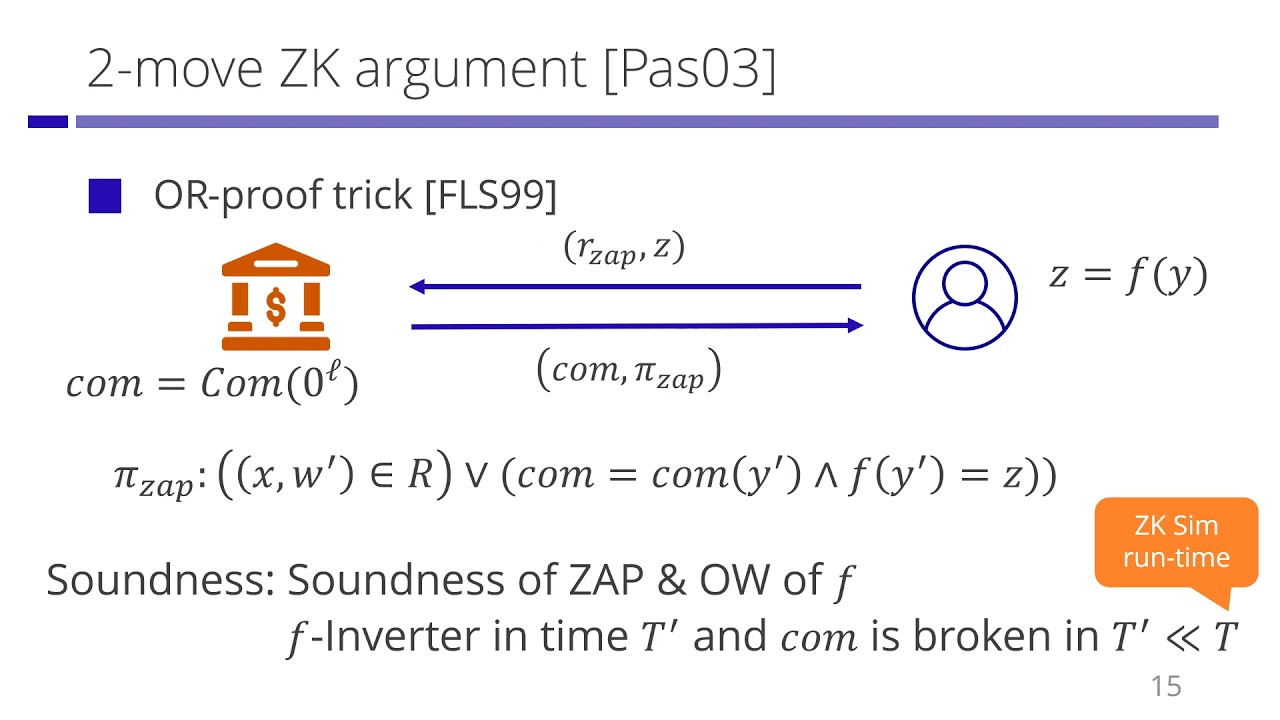Welcome to the resource topic for 2021/306
Title:
Round-Optimal Blind Signatures in the Plain Model from Classical and Quantum Standard Assumptions
Authors: Shuichi Katsumata, Ryo Nishimaki, Shota Yamada, Takashi Yamakawa
Abstract:Blind signatures, introduced by Chaum (Crypto’82), allows a user to obtain a signature on a message without revealing the message itself to the signer. Thus far, all existing constructions of round-optimal blind signatures are known to require one of the following: a trusted setup, an interactive assumption, or complexity leveraging. This state-of-the-affair is somewhat justified by the few known impossibility results on constructions of round-optimal blind signatures in the plain model (i.e., without trusted setup) from standard assumptions. However, since all of these impossibility results only hold under some conditions, fully (dis)proving the existence of such round-optimal blind signatures has remained open. In this work, we provide an affirmative answer to this problem and construct the first round-optimal blind signature scheme in the plain model from standard polynomial-time assumptions. Our construction is based on various standard cryptographic primitives and also on new primitives that we introduce in this work, all of which are instantiable from classical and post-quantum standard polynomial-time assumptions. The main building block of our scheme is a new primitive called a blind-signature-conforming zero-knowledge (ZK) argument system. The distinguishing feature is that the ZK property holds by using a quantum polynomial-time simulator against non-uniform classical polynomial-time adversaries. Syntactically one can view this as a delayed-input three-move ZK argument with a reusable first message, and we believe it would be of independent interest.
ePrint: https://eprint.iacr.org/2021/306
Talk: https://www.youtube.com/watch?v=EnRHkc7gS3g
See all topics related to this paper.
Feel free to post resources that are related to this paper below.
Example resources include: implementations, explanation materials, talks, slides, links to previous discussions on other websites.
For more information, see the rules for Resource Topics .
